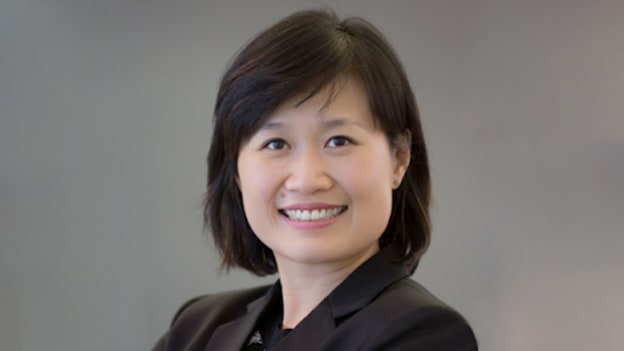Building authentic leaders: Insights from leadership coach, Amy Tan

“It was a blessing and an opportunity”, says Amy Tan about her shift from business (serving as an engineer) to talent. Now a leadership coach working with global teams, she stresses on the need for good values and the right mindset besides skills when it comes to building better leaders who would in turn build better teams. As organizations are becoming leaner, it might mean the rise of a shrinking workforce but a more skilled one.
As such, she said that the organization that thrives in this VUCA (Volatile, Uncertain, Complex, Ambiguous) environment would be the one which has keen foresight of the skills needed in the future of work and embraces these foreseen changes by providing human capital opportunities to grow and be developed.
Developing leaders to meet the present and future needs of the organization comes with its own set of challenges. Best-selling author and executive leadership coach Marshall Goldsmith says there are some leaders who just can’t be helped to greatness.
“With that”, she says, “We don’t force development or coaching upon leaders who at that present time are 'un-coachable'. That would mean that they have closed their minds and heart to development for whatever reasons, like finding themselves perfect in their current job and thus not needing development.”
She added that, “We give this group of people space and time and will revisit their interest in different seasons of their life. People do go through different seasons in their life journey. Each season brings different peaks and troughs that can shape or break us and hopefully each experience brings about greater self-awareness and a different light to development.”
Leaders for tomorrow
It is interesting to map out the patterns and trends seen in leaders across the world especially today, given that we live in a world that is über-connected and every change or disruption has the power to create ripples across the globe. With organizations getting flatter, collaboration is needed for any organization that wants to thrive.
The future of work would demand for leaders who have the ability to adapt and the willingness to evolve. The changing landscape warrants a changed leader. There is a lot of talk around top-down versus facilitative types of leadership. Amy believes that it is not either-or but rather that both are mutually inclusive. She mentioned that the culture in Asia is still very much top-down, though it is slowly changing. Previously, great leaders were associated with higher power, self-achievement and self-capability. In this new era of rapid change and disruption, more organizations are espousing collaboration and influence and actively crowdsourcing for wisdom and information to draw in the best ideas that are out there. Organizations are increasingly looking out for leaders who are successful in execution and have the ability to evoke greater success as a team. She said that this also increases a sense of ownership that drives accountability and engagement amongst employees.
Amy believes that, “the success of a leader is in his/her team, the ability to unleash the potential of the team and bring the whole team along towards success.”
Uncertainties and complexities are palpable and being able to be innovative at such times is proving to be more challenging. What leaders need now is innovative leadership. Amy finds that innovative leaders are those that have huge self-awareness, confidence, and a great deal of humility. When these values are coupled with the growth mindset, innovative leaders stand out in their ability to multiply the efforts of their team members. Leaders with a growth mindset look within, strive to be the best version of themselves and see the crucial importance of developing their team. They focus on enabling a collaborative environment that helps members complement one another as they work towards fulfilling a common purpose. These leaders do this by playing at each one’s strengths, amplifying their talents and building synergy amongst the team members.
To enable this, one has to encourage an appetite for continuous life-long learning and see mistakes or failures as opportunities for learning and improvement. Innovative leaders fuel their teams through building an environment of trust with high psychological safety that heightens exploration, innovation and development of individual and teams. Many of these leaders are those who have mastered the art of listening, reflecting and self-management. She noted that in order to master the art effectively, one needs to be true and accepting of oneself and uphold humility as the key virtue. Jim Collin rightly encapsulates the thought that the difference between a good leader and a great leader is humility.
Amy says that she believes that there are several other qualities that continue to be essential for leaders as we move into the future. Amongst those are ethics and compliance, empathy, emotional intelligence, authenticity, agility, resilience and inclusiveness.
The value of values
Above all, she believes that it all starts with the heart - our intention. It is important that leaders have the right intention (anchored in strong and good values) before they start learning how to drive perceptions. Without that, it could lead to the making of a tyrant. Leaders who are anchored on strong values and good intentions are better able to build thriving and sustainable teams that grow and progresse in this VUCA world and BOCA (Blurred boundaries, Overloading of work, Complex, Addiction to technologies) workplace.
Values, of course, need to be at the center of this whirlpool of fast-paced change because as Amy says, “when everything else falls – values remain”.
“We also need to remember that we, humans are different from machines. The need to pace our growth is paramount for us to effectively tap into the strengths and talents of human beings,” says Amy.
These insights point towards two critical observations – that in our globalized world, the larger wave of trends in leadership is washing over the shore of every region, sector and industry and that change in how we perceive and want leadership to be perceived is a mandate.
The article is based on an interview with Amy Tan that was conducted by Megha Agarwal.
















